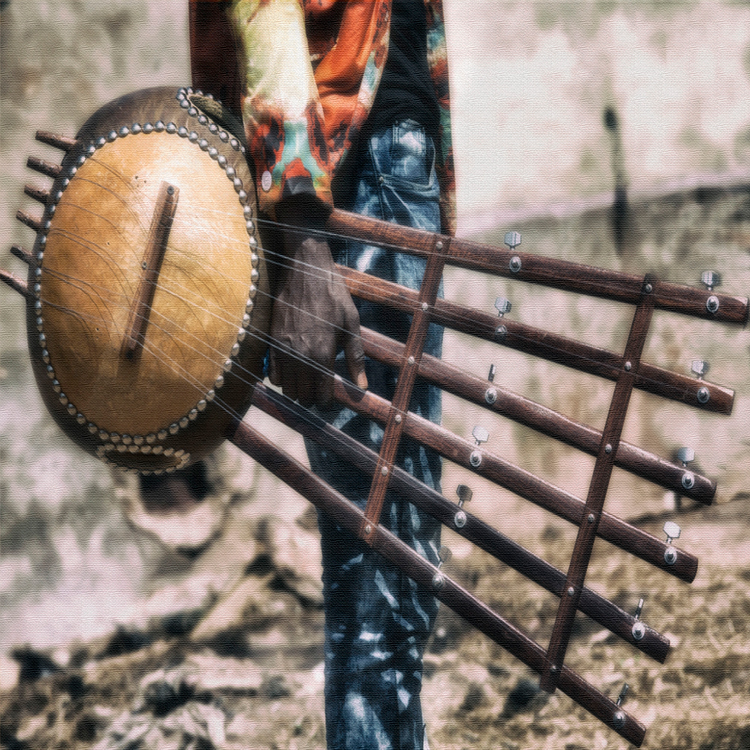The Malian n’dan is a remarkable descendant of one of the world’s oldest string instruments. Classified by organologists as a pluriarc , denoting ‘many bows,’ it traces its roots to the musical bow, which, in turn, evolved from the hunters’ bow. Within musical instruments, the pluriarc is a rarity today, predominantly found in Central and Southern Africa, with Mali nearly unfamiliar with its presence. However, the fate of this ancient instrument seems poised for transformation, thanks to the creative talent of Adama Yalomba, a virtuoso musician who inherited the n’dan from his late father, Samandji.
Traditionally equipped with six wire strings, each attached to a flexible bamboo stick, the n’dan’s strings converge at the instrument’s bridge on the round side of the half calabash resonator. Unlike the kora, the n’dan exists in a distinct musical universe and is intertwined with a vanishing way of life. Historically played in public spaces in the Malian countryside, it served as a melodic storyteller celebrating the triumphs of adventurous individuals who returned home victoriously after exploring distant regions.

Adama Yalomba’s mission extends beyond mere preservation; he endeavors to revive and recreate the n’dan by constructing it in diverse ways and sizes suitable for ensemble performances. His latest album, unveiled in early 2024 by Remote Records, unveils an instrument with enhanced flexibility, primed to reach broader audiences.
Notably, Adama’s adaptation introduces twelve strings distributed across individual bamboo bows, complemented by tuning keys and an animal skin stretched over the gourd’s open half, serving as the soundboard.
Through innovative compositions, he pays homage to the n”dan’s original spirit while ushering it into the 21st century. This evolution not only adds strings but also broadens the horizons of this ancient instrument, marking a significant chapter in its rich history.
Sources: Lucy Duran & Paul Chandler


